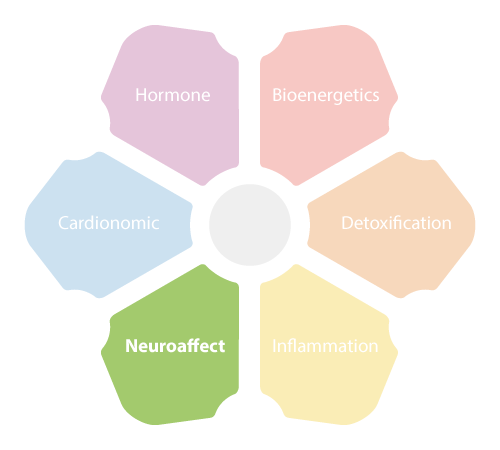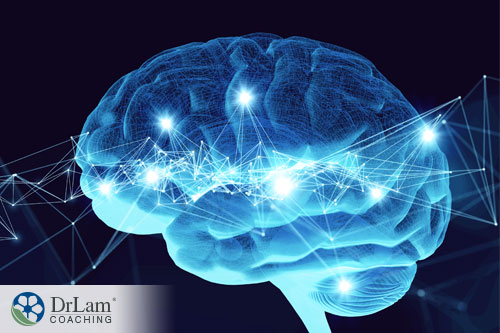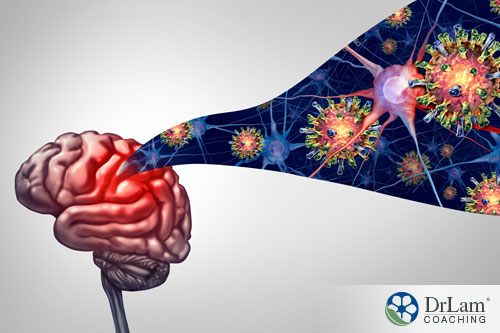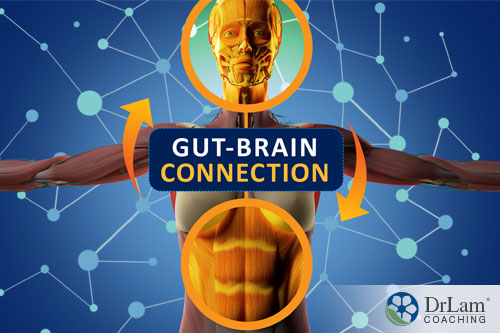Protecting the health of your brain is essential as you age. Unfortunately, getting older often means losing your memory and suffering from declining cognitive function. Right now, there is very little that medical professionals can do to reverse these issues associated with old age. But new research about cat's claw and the brain may one day be able to change that. With the expected lifespan increasing, avoiding the health problems associated with this stage of life is becoming more and more critical. And cat's claw, along with other ways to reverse cognitive decline and protect brain health, could become vital in ensuring the long-term quality of life for us all.
 Cat's claw is a little-known vine found in the depths of the Amazon rainforest. It has been used for years by the local tribes as a way to boost the immune system, which is why medical professionals have recently been performing studies about cat's claw and the brain. What they've found is quite remarkable and has long term implications for the health of a large segment of the population. Here are just some of the health benefits the researchers have found so far:
Cat's claw is a little-known vine found in the depths of the Amazon rainforest. It has been used for years by the local tribes as a way to boost the immune system, which is why medical professionals have recently been performing studies about cat's claw and the brain. What they've found is quite remarkable and has long term implications for the health of a large segment of the population. Here are just some of the health benefits the researchers have found so far:
Not every type of cat's claw is the same or has the same health benefits for the brain. The usefulness of this plant is dependent on several factors such as the extraction process, where it's grown, the specific species of plant, and what part of the cat's claw is harvested. But the useful insights from the study of cat's claw and the brain show such interesting effects on plaques, tangles, and inflammation that the studies have continued.
There are many brain-related problems associated with getting older, and memory loss and declining cognitive function are just the beginning. These issues are often associated with dementia and Alzheimer's disease, and they're becoming more common as the population ages. Statistics suggest that 5 million people in the US are living with age-related dementia, with figures jumping up to 47.5 million worldwide. And around 7.7 million new cases are diagnosed each year, which is why this is such an important issue on the individual and global level.
The statistics for Alzheimer's disease aren't that much more encouraging. It's the sixth leading cause of death, and around 1 in 10 people over the age of 65 have Alzheimer's disease in the US.
The physical mechanism of memory loss and cognitive decline in older adults isn't well understood, but recent studies have indicated that it's associated with three factors. These are:
Despite this new insight into these common and frightening diseases, there is still no clear understanding of why neurotoxins accumulate and result in cognitive decline. Continued research into cat's claw and the brain is necessary. However, one possible factor in the progression of this condition has to do with how stress affects the body.
 Your body is designed to cope with short term, acute stress using the NeuroEndoMetabolic (NEM) Stress Response. In the evolutionary past, this system made changes that enabled human ancestors to flee from predators and threats. Those changes not only gave people the energy to fight or run; it also protected the body from the damage that stress can do to it. But in the modern world, short term stressors like this aren't prevalent. Instead, people have chronic sources of stress, including poor working conditions, bad diets, a sedentary lifestyle, high-stress relationships, environmental toxins, and other ongoing problems. These issues cause ongoing health problems and result in chronic activation of the NEM stress response. The real issue is that, because the stressors are ongoing, the activation of the stress response must be as well.
Your body is designed to cope with short term, acute stress using the NeuroEndoMetabolic (NEM) Stress Response. In the evolutionary past, this system made changes that enabled human ancestors to flee from predators and threats. Those changes not only gave people the energy to fight or run; it also protected the body from the damage that stress can do to it. But in the modern world, short term stressors like this aren't prevalent. Instead, people have chronic sources of stress, including poor working conditions, bad diets, a sedentary lifestyle, high-stress relationships, environmental toxins, and other ongoing problems. These issues cause ongoing health problems and result in chronic activation of the NEM stress response. The real issue is that, because the stressors are ongoing, the activation of the stress response must be as well.
The NEM stress response directs organs like the adrenal glands to work more than usual. These organs can usually handle this overwork for a short period. However, over time, they become fatigued, and this is where Adrenal Fatigue Syndrome (AFS) comes in. The adrenal glands are probably one of the most critical components of the NEM stress response because they release the stress hormone cortisol. When the body's demand for cortisol is too high over a long period, the adrenals become fatigued and start to struggle in their duties. And because cortisol affects every system and circuit in the body, this will have widespread implications for your health.
The NEM is divided into six circuits, sets of organs and systems with related duties, and which are more immediately affected by each other when one aspect begins to experience problems. Understanding how these circuits affect the brain can help trace the related factors that can worsen cognitive decline.
Every organ and system in your body is interconnected. When one becomes dysregulated or unbalanced, other connected systems and organs are negatively affected. This is what happens when you have AFS. The overwork of the adrenal glands affects the different organs and systems in the associated circuit and start to cause problems throughout the body.
The Neuroaffect circuit becomes involved in AFS quite early in the process, though severe symptoms in this circuit usually appear only in the later stages. Some early signs of imbalances in this circuit include brain fog, fatigue, sleeping problems, mental disorders or symptoms, gut upsets, and the overactivation of the Autonomic Nervous System (ANS).
The reason why these symptoms are so varied is because of the nature of the Neuroaffect circuit. It includes the ANS, the brain, and the microbiome (the balance of good and bad bacteria in the gut). These systems are closely interconnected, so when the gut becomes unbalanced, it causes mental symptoms as well as overactivation of the ANS. This, in turn, causes the system to become even more unstable and increases your stress levels. This then prompts a response from the NEM stress response and worsens symptoms and AFS.
 There's also a strong link between AFS and memory loss which is relevant to the research about cat's claw and the brain. People with AFS are in a state of high stress, and this can severely impair your memory and cognitive processing. Studies have shown that stress in rats causes a deficit in glutamate receptors in the prefrontal cortex. This is the part of the brain that controls high-level functions like memory and decision making. As a result, people with AFS often experience ongoing lapses in memory because of their high-stress levels and because of their general fatigue. This can severely impact the quality of life.
There's also a strong link between AFS and memory loss which is relevant to the research about cat's claw and the brain. People with AFS are in a state of high stress, and this can severely impair your memory and cognitive processing. Studies have shown that stress in rats causes a deficit in glutamate receptors in the prefrontal cortex. This is the part of the brain that controls high-level functions like memory and decision making. As a result, people with AFS often experience ongoing lapses in memory because of their high-stress levels and because of their general fatigue. This can severely impact the quality of life.
Memory loss may also be connected to the imbalances in the Neuroaffect circuit. High cortisol levels over a long period can have severe effects on the brain's chemicals and neurotransmitter levels. This will affect your sleeping patterns, mood, and general mental health.
In effect, the damage done by the imbalances could be close to the equivalent of an injury, which can cause plaque formation and affect memory. If you're older, you may also have plaque formations as part of the natural aging process. If you do have plaque formations for whatever reason, removing them may help improve memory loss and encourage better overall functioning. And the research is promising. New research into cat's claw and the brain indicate that this plant may be able to help do just that.
Studies on cat's claw and the brain are ongoing, but the results are promising at the moment. The results show that cat's claw causes an immediate inhibition of beta-amyloid plaque formation. It dissolves the plaques, turning them into an amorphous material so that they can dissolve harmlessly into the brain. This effect occurs very quickly, as well. It also has positive effects on tangles of tau proteins, which is another issue related to memory loss and cognitive decline. Under an electron microscope, these look like twisted filaments, but cat's claw disrupts both naturally occurring tangles and deliberately formed ones. It does this by unzipping the beta sheet around the tangles and dissolving them into the body.
A recent study was conducted on mice that started accumulating plaques at around 3-4 months of age. At the time of the study, the mice were at 6-8 months of age and had advanced plaque formations in their brain that severely affected their memory. After 14 days of putting the cat's claw extract directly into the brain using a pump, the researchers noticed a 59 percent reduction in plaque load and a 78 percent reduction in plaque number. A secondary study that administered cat's claw peripherally, for example by mouth, showed a 33.2 reduction percent in plaque load and 57 percent reduction of plaque number. These numbers are astonishing and show the true potential of this cat's claw for brain health.
One concern with these studies on cat's claw and the brain has been the best ways to supply the supplement. Researchers were concerned that the substance wouldn't cross the blood-brain barrier and reach the brain. To solve this issue, the researchers put a radiolabel on one of the cat's claw constituents while ensuring that the label didn't change the substance. And in an astonishing display, the radio marker was shown to enter the brain in less than 2 minutes. This is shockingly fast, and it means that there are lots of options open when it comes to using cat's claw effectively.
 Currently, the reason for these effects isn't fully understood. There are 7-10 components in cat's claw, including some new ones that had never been seen before these recent studies. There are several known alkaloids present. These are naturally occurring compounds found most often in plants and consisting mostly of nitrogen atoms. They have a pronounced effect on the human body and can be found in a variety of medications such as morphine and opium.
Currently, the reason for these effects isn't fully understood. There are 7-10 components in cat's claw, including some new ones that had never been seen before these recent studies. There are several known alkaloids present. These are naturally occurring compounds found most often in plants and consisting mostly of nitrogen atoms. They have a pronounced effect on the human body and can be found in a variety of medications such as morphine and opium.
However, several specific polyphenols were also found in cat's claw, including some which were unfamiliar to the researchers. This includes proanthocyanidins, which are chemical compounds that give many types of fruit, their blue, red, or purple colors. They may help in the fight against cancer, have anti-aging properties, and are found in red wine and grape seed extract. These substances are also Epicatechin dimers. Epicatechin is a polyphenol which is found in green tea. Both of these substances may be what give these foods their incredible health benefits. What this means is that cat's claw contains two essential types of polyphenols or phytochemicals that are usually only found separately. And these particular phytochemicals both help with the inhibition of plaque formation and growth.
There may also be even more important constituents within this vine, and some of them were the focus of the study on cat's claw and the brain. One of the new polyphenols found in cat's claw, known as H2, could also reduce brain plaque in older and younger mice. This is important because it means that older animals may benefit from this treatment even if they have marked memory loss and cognitive decline because of plaque.
The study showed that older mice who had 20.35 plaques per square millimeter in the brain experience a decrease of plaque numbers by 52 percent. This means that this extract could be beneficial for the millions of people with extensive plaque formations caused by dementia and Alzheimer's.
This means that, if it works, then this extract has the potential to help a lot of people across the world when it becomes accepted for human use. It may also help when you have AFS and need to improve the overall health of your brain as well as specific problems related to imbalances of the Neuroaffect circuit.
The real point of these studies into cat's claw and the brain is whether plaque reduction and the use of this extract could help improve memory. And the results are encouraging.
Mice with lots of plaque in the brain usually have trouble finding a platform in a maze even after they've been trained to do it. It takes them a long time, up to 6.79 meters to find it. This reflects the problems that people with dementia and memory loss experience. In contrast, mice who have been trained and don't have any plaque usually find the platform in 2.50 meters. This is a marked difference and shows just how detrimental the plaques can be.
 However, during a study on cat's claw and the brain, these numbers improved a lot. After just 3 months of the medication, the mice with the plaque experienced a marked reduction in the number and size of the growths. Their memory improved by 58 percent and their ability to navigate the maze was almost back to normal again.
However, during a study on cat's claw and the brain, these numbers improved a lot. After just 3 months of the medication, the mice with the plaque experienced a marked reduction in the number and size of the growths. Their memory improved by 58 percent and their ability to navigate the maze was almost back to normal again.
This shows that not only can cat's claw dissolve plaque, but it can also reverse memory loss. That's why it may be so useful in the treatment of people with dementia and Alzheimer's.
Neuroinflammation is a key component in memory loss and cognitive decline with age, which is why the results of the study into cat's claw and the brain are so exciting for medical professionals and the general public.
The study showed that cat's claw caused a marked reduction in inflammation. Astrocytes, which are powerful anti-inflammatory agents, decreased by 69 percent. Astrocytes act on the central nervous system to regulate the inflammatory response.
Microglia were also reduced by 80.3. Microglia are a type of cell found throughout the brain and spinal cord and are the primary immune system defense in the central nervous system. So, the reduction of both of these markers indicates a marked reduction of inflammation throughout the body and in the nervous system, in particular, which means a decrease in brain inflammation.
Inflammation also plays a significant role in causing many medical conditions along with cognitive decline.
Inflammation is a natural bodily process that's designed to help protect your body. When your body senses a foreign invader, it causes inflammation to expel it. And when the cause of the stress is gone, the body returns to its previous state of good health. However, chronic stress causes chronic inflammation, which is a low-grade, ongoing form that's extremely damaging for your brain and every other part of your body as well. Chronic inflammation taxes the immune system and causes a toxic build-up in your body.
High levels of inflammation in the brain are very damaging to the brain itself and the Neuroaffect circuit. It can cause an increased risk of depression, anxiety, shrink the prefrontal cortex, and even make communication between the neurons more difficult. This all can affect your memory and cognitive processing. Inflammation is also very detrimental to the health of the gut as well. It can prompt a further immune response, which will cause higher inflammation levels. It can also cause imbalances of the bacteria in the stomach, resulting in infections, bacterial overgrowth, and even severe digestive problems. This will lead to poor nutrient absorption and additional issues.
Because the health of the brain and the gut are closely linked, it creates a feedback loop where gut problems affect the brain, and brain problems affect the gut. And both of these problems are worsened by inflammation. This is why the research into the anti-inflammatory aspects of cat's claw and the brain is so relevant to people who suffer from these types of problems.
Finding ways to rebalance your Neuroaffect circuit is probably one of the best places to start addressing issues with brain health. As we wait for research into cat's claw and the brain to develop to a point where supplements become available, practicing other ways to care for your brain, ANS and gut could be the best thing you can do for your health. Rebalancing the Neuroaffect circuit can include some of the following strategies:
The new research into cat's claw and the brain indicates that this supplement could be a part of that. It could help you to improve the health of your brain by reducing inflammation and by removing and dissolving plaques.
All this research into cat's claw and the brain is heading towards the creation of a new dietary supplement for age-related memory loss and cognitive function decline. It could also help improve and maintain the health and the function of the brain before it gets to that point. This would be a great benefit in the treatment of disorders like dementia and Alzheimer's, but it could also help address the mental symptoms and Neuroaffect imbalances that occur with AFS.
However, this research is still ongoing. There are supplements available at the moment, but before buying them you need to ensure that the cat's claw is the right variety, that it comes from the right part of the world, that the extraction procedure is effective and ensures the continued effectiveness of the substances in the cat's claw, and that the manufacturer used the right part of the plant. If these standards aren't met, then the cat's claw may not have the effect you're looking for. So, before you start taking this supplement, make sure that you do your research.
Research into cat's claw and the brain is only in its infancy, which means that you need to be even more careful than usual when adding this to your dietary routine.
It's important to note: because of the overexcitation of the immune system as well as widespread circuit dysfunctions that occur when you have AFS, there is a risk of an adverse reaction when you take new substances. AFS can often cause paradoxical reactions or allergic reactions to new or even to familiar foods, medications, and supplements, which will only set back your recovery. That's why it's important that you have the help of a medical professional who's aware of your condition and knows about AFS before you make this change.
A medical professional who's trained in the processes and malfunctions that come with AFS will be able to guide you to make positive and effective changes in your life. Because they have an in-depth understanding of AFS, they will be able to help you avoid pitfalls on your AFS recovery journey. They will also be able to identify the most effective strategies to reduce or eliminate the circuit imbalances that characterize your particular experience of AFS. AFS manifests differently in everyone, which is why this individual approach is essential to your recovery.
 To stay healthy as you age, you need to start early with strategies that will protect your brain and maintain its health over the long-term. One of the best ways to do this is by identifying the most common problems that come with age and adopting strategies to address them ahead of time. That's why this research about cat's claw and the brain is so important. It could indicate a new way to treat the cognitive issues that often come with age.
To stay healthy as you age, you need to start early with strategies that will protect your brain and maintain its health over the long-term. One of the best ways to do this is by identifying the most common problems that come with age and adopting strategies to address them ahead of time. That's why this research about cat's claw and the brain is so important. It could indicate a new way to treat the cognitive issues that often come with age.
Working to improve the health of the Neuroaffect circuit could also help your brain health. Taking steps to improve your gut health, reduce inflammation, ensure you get enough sleep, exercise regularly, and eat a healthy diet are excellent ways to protect your brain and your longevity. One day, properly extracted cat's claw may be a life-changing supplement, but in the meantime, you can start taking better care of your brain today.
© Copyright 2020 Michael Lam, M.D. All Rights Reserved.
There is strong evidence about the health benefits of cat's claw and the brain. This relatively unknown vine may offer a way to protect and maintain your memory and cognitive abilities as you age. It may also be important in improving or protecting your brain in every phase of life.
